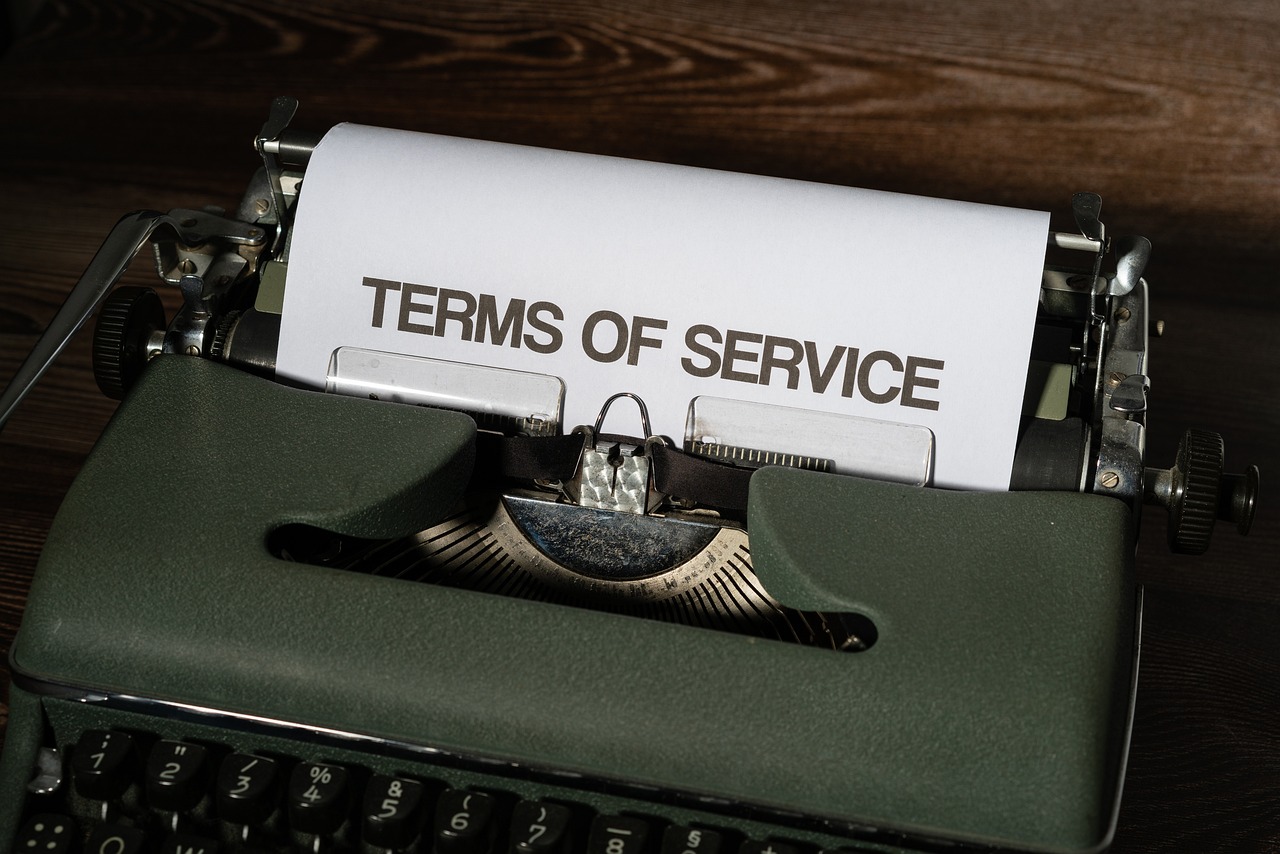Whether you’re a seasoned entrepreneur or just starting out, understanding contract law is crucial for the success of your small business. From drafting agreements to resolving disputes, contract law governs the relationships and obligations between parties. In this article, we’ll delve into the intricacies of contract law and provide you with valuable insights and guidance. With a clear call-to-action, we encourage you to reach out to our experienced attorney for further assistance. Don’t let legal concerns hold you back – take the next step and ensure the protection of your business. Let’s navigate the world of contract law together!

Understanding Contract Law
Contract law is a vital aspect of conducting business, and it is essential for small business owners to have a thorough understanding of its principles. Contracts establish the legal framework for agreements between two or more parties, outlining their rights and obligations. This article aims to provide you with a comprehensive overview of contract law, including its definition, key elements, types of contracts, offer and acceptance, consideration, contractual capacity, contractual terms, breach of contract, termination of contracts, drafting effective contracts, and the importance of professional legal advice.
Definition of a Contract
A contract, in legal terms, is a legally binding agreement between two or more parties, enforceable by law. It sets out the rights and obligations of each party and provides a clear understanding of what is expected from everyone involved. Contracts can be written or oral, but it is generally advisable to have a written contract to ensure clarity and avoid any misunderstandings.
Key Elements of a Contract
To be legally valid, a contract must contain certain key elements:
-
Offer and Acceptance: There must be a clear offer made by one party and an acceptance of that offer by the other party. This creates a mutual agreement between the parties involved.
-
Consideration: Consideration refers to something of value given by each party to the other. It could be money, goods, services, or a promise to do or not to do something. Consideration is necessary to make a contract legally binding.
-
Contractual Capacity: Contractual capacity refers to the legal ability of individuals to enter into a contract. The parties involved must have the mental competence and legal age required by law to enter into a contract.
-
Contractual Terms: The contract must clearly define the terms and conditions agreed upon by the parties. These terms may be expressed explicitly or implied through the conduct of the parties or the circumstances surrounding the contract.
Types of Contracts
Contracts can be categorized into two main types: express contracts and implied contracts.
Express contracts
Express contracts are the most common type of contracts. They are created when the parties explicitly state their intentions and agreements in writing or orally. These contracts clearly define the terms and conditions, leaving no room for ambiguity or confusion.
For example, when you hire a web developer for your small business and both parties agree on the scope of work, deadlines, and payment terms, you are entering into an express contract.
Implied contracts
Implied contracts, also known as implied-in-fact contracts, are agreements that are inferred from the conduct of the parties or the circumstances of the case. These contracts may not be explicitly stated in writing or orally, but they are implied based on the parties’ actions or the nature of the relationship.
For instance, when you visit a restaurant and order a meal, there is an implied contract between you and the restaurant. You expect to receive a meal in exchange for payment, even though the terms were not explicitly discussed.
Offer and Acceptance
What constitutes an offer
An offer is a proposal made by one party to another indicating that they are willing to be bound by specified terms. It must be clear, definite, and communicated to the other party. The offeror must intend to create legal relations, and the terms of the offer must be capable of being accepted.
In essence, an offer sets out the starting point for negotiations and allows the offeree to accept, reject, or propose a counteroffer.
Acceptance of an offer
Acceptance occurs when the offeree agrees to the terms of the offer. It must be communicated in a clear and unambiguous manner, in line with the method specified in the offer (e.g., in writing, orally, or through conduct). If the offeree adds any additional conditions or changes the terms of the offer, it is considered a counteroffer and requires acceptance by the original offeror.
Once the offer is accepted without any modifications, a legally binding contract is formed.
Consideration
Definition of consideration
Consideration refers to something of value exchanged between the parties entering into a contract. It can be in the form of money, goods, services, or a promise to do or not to do something. Consideration is a vital element of a contract as it distinguishes it from a gift or a mere promise.
To have a valid contract, both parties must provide consideration. It acts as a form of exchange, demonstrating that each party is gaining something of value and voluntarily entering into the contract.
Types of consideration
Consideration can take various forms:
-
Money: The most common form of consideration is money. Payments made for goods or services establish a clear exchange between the parties.
-
Goods or Services: Consideration can also involve the provision of goods or services. For example, a graphic designer providing a logo design in exchange for website development services.
-
Promise to Act: A promise to perform an act or refrain from doing something can also be valid consideration. For instance, if you promise to paint your friend’s house and they promise to mow your lawn, this mutual promise constitutes consideration.
-
Forbearance: Forbearance refers to refraining from doing something one has a legal right to do. For example, if a landlord agrees not to evict a tenant in exchange for timely rent payments, the tenant’s payment is considered consideration.
Contractual Capacity
Capacity of parties to enter into a contract
Contractual capacity refers to the legal ability of individuals to enter into a contract. The law recognizes that not everyone has the same level of understanding, maturity, or ability to make informed decisions. Therefore, certain individuals may lack the legal capacity to enter into contracts, such as minors and mentally incapacitated individuals.
In general, individuals must be of legal age and have the mental competence to understand the nature and consequences of entering into a contract. If a party lacks contractual capacity, the contract may be voidable or unenforceable.
Special rules for minors and mentally incapacitated individuals
Minors, individuals under the age of majority, are not considered to have full contractual capacity. Contracts entered into by minors are typically considered voidable, meaning that the minor can choose to enforce or void the contract once they reach the age of majority. However, certain contracts, such as contracts for necessities like food, clothing, and shelter, are generally binding on minors.
Similarly, mentally incapacitated individuals may lack the capacity to understand the terms and consequences of a contract. In such cases, the contract may be voidable or unenforceable. The law provides protection for these individuals to prevent them from being taken advantage of in contractual agreements.

Contractual Terms
Express terms
Express terms are the specific provisions explicitly stated in a contract. These terms can be in writing or orally agreed upon by the parties. Express terms provide certainty and assist in interpreting the parties’ rights and obligations. It is essential to ensure that express terms are clear, unambiguous, and reflect the true intentions of the parties.
For example, in a purchase agreement for a piece of equipment, the express terms might specify the price, payment terms, delivery date, and any warranties or guarantees provided.
Implied terms
Implied terms are provisions that are not expressly stated in the contract, but are nonetheless deemed to be included based on law, custom, or the nature of the agreement. These terms are presumed to be intended by the parties and are necessary to give the contract efficacy.
Implied terms can be implied by law, such as statutory provisions or case law, or by the courts as a matter of fact or necessity. For instance, when you purchase a product, there is an implied term that the product will be of satisfactory quality and fit for its intended purpose.
Conditions and warranties
Contracts often include conditions and warranties that outline the consequences of certain events or the quality of goods or services provided.
Conditions are major terms of a contract that are essential to its performance. If a condition is breached, the innocent party is entitled to terminate the contract and seek remedies for the breach.
Warranties, on the other hand, are minor terms that are not essential to the contract’s performance. If a warranty is breached, the innocent party can seek damages but usually cannot terminate the contract.
Breach of Contract
Types of breaches
A breach of contract occurs when one party fails to fulfill their obligations as specified in the contract. There are different types of breaches, including:
-
Material Breach: A material breach occurs when a party fails to perform a significant obligation under the contract. The breach is substantial enough to substantially deprive the other party of the benefits they expected from the contract.
-
Partial Breach: A partial breach occurs when a party partially performs their obligations, but not in the exact manner or to the extent specified in the contract.
-
Anticipatory Breach: An anticipatory breach occurs when one party indicates, either through words or actions, that they will not be able to fulfill their obligations under the contract in the future.
Remedies for breach of contract
When a breach of contract occurs, several remedies are available:
-
Damages: Damages are the most common remedy for breach of contract. The innocent party may be awarded monetary compensation to cover any losses or harm suffered as a result of the breach.
-
Specific Performance: In cases where monetary compensation is inadequate, a court may order specific performance. This means that the breaching party is required to fulfill their obligations as stated in the contract.
-
Rescission: Rescission allows the innocent party to cancel the contract and be released from any further obligations. This remedy is typically available when the breach is fundamental and goes to the core of the contract.
Termination of Contracts
Ways to terminate a contract
Contracts can be terminated in various ways:
-
Performance: A contract is terminated when both parties have fulfilled their obligations as specified in the contract.
-
Agreement: The parties may mutually agree to terminate the contract either through a formal agreement or through an oral understanding.
-
Breach: If one party breaches the contract, the innocent party may choose to terminate the contract as a remedy for the breach.
-
Operation of Law: Certain events may automatically terminate a contract, such as death, destruction of the subject matter, or illegality.
Consequences of termination
When a contract is terminated, the parties are released from their obligations under the contract. However, termination does not absolve either party from any liabilities or obligations that may have arisen prior to termination. Additionally, the termination may trigger certain consequences, such as the return of any property exchanged or the payment of compensation for work done before termination.
Drafting Effective Contracts
Clarity and specificity
When drafting a contract, clarity and specificity are key. The terms and provisions of the contract should be clear, leaving no room for ambiguity or misunderstanding. It is important to use plain language and avoid legal jargon that may confuse the parties.
Additionally, the contract should be specific, addressing the particularities of the agreement and leaving no room for assumptions. Clearly define the rights, obligations, and expectations of each party, including timelines, payment terms, and any other relevant details.
Key clauses to include
While each contract will vary depending on the nature of the agreement, some key clauses should be considered:
-
Parties and Consideration: Clearly identify the parties involved and include a detailed description of the consideration exchanged.
-
Scope of Work or Deliverables: Specify the goods or services to be provided, including any deadlines or milestones.
-
Payment Terms and Price: Clearly outline the payment terms, including the total price, installment payments, due dates, and any penalties for late payment.
-
Termination Clause: Include a termination clause that specifies the conditions under which either party can terminate the contract and any consequences that may arise.
-
Dispute Resolution: Include a clause that outlines how any disputes arising from the contract will be resolved, such as through mediation, arbitration, or litigation.

Importance of Professional Legal Advice
Benefits of consulting an attorney
Seeking professional legal advice is crucial when dealing with contract law. An attorney specialized in contract law can provide valuable guidance and assistance throughout the contract negotiation and drafting process. Some benefits of consulting an attorney include:
-
Expertise: Attorneys have extensive knowledge of contract law and can help you navigate complex legal concepts, ensuring that your contracts are legally sound.
-
Risk Mitigation: An attorney can identify potential risks and liabilities within your contracts, helping you avoid costly mistakes and disputes in the future.
-
Customization: Attorneys can tailor contracts to your specific needs, ensuring that they reflect your unique business requirements and protect your interests effectively.
-
Dispute Resolution: If a dispute arises, an attorney can guide you through the resolution process and represent your interests in negotiations or litigation.
Choosing the right attorney for your small business
When selecting an attorney for your small business, consider the following factors:
-
Experience: Look for an attorney with experience in contract law and a proven track record of successfully handling similar cases.
-
Specialization: Choose an attorney who specializes in contract law or has a significant portion of their practice dedicated to it. This ensures that they have the necessary expertise in this specific area.
-
Communication: Effective communication is vital when working with an attorney. Ensure that the attorney you choose is responsive, listens to your concerns, and explains legal concepts in a way that you can easily understand.
-
Affordability: Consider the attorney’s fees and whether they align with your budget. It is important to strike a balance between quality and cost-effectiveness.
In conclusion, understanding contract law is essential for small business owners to protect their interests and ensure smooth business operations. By grasping the key elements of a contract, types of contracts, offer and acceptance, consideration, contractual capacity, contractual terms, breach of contract, termination of contracts, drafting effective contracts, and the importance of professional legal advice, you can navigate the complexities of contract law confidently. Seeking the guidance of an experienced attorney can provide you with valuable advice and ensure that your contracts are legally sound, protecting your business from potential risks and liabilities.


























